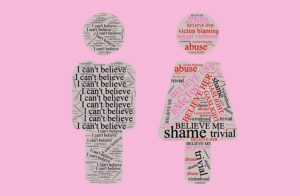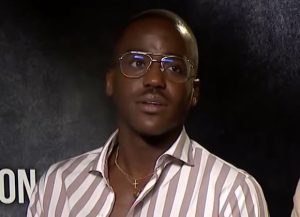Talking About Sex Doesn’t Make You Hypersexual
Taboos around discussing sex contribute to the demonization of female sexuality and the prevention of female pleasure
Talking about sex opens up lanes of communication that enable people to feel secure in their sexual endeavors.
May 4, 2022
I love talking about sex. I love hearing my friends talk about sex. I love reading about female sexuality. This, however, does not mean I am hypersexual.
Let’s define hypersexuality. Also called sex addiction, it is a phenomenon that is not always accepted as a mental disorder but nevertheless is real. Hypersexuality refers to “an excessive preoccupation” with sex that “causes you distress, or negatively affects your health, job, relationships or other parts of your life.”
Despite any religious or societal views that say otherwise, enjoying sex is more than normal. Hypersexuality, however, is a problem because it makes sex the focal point of your life to the point where it disrupts your ability to function. People who embrace their sexuality by talking about it are most likely not losing their jobs due to an inability to control their fantasies.
Embracing sexuality in a world still full of taboos surrounding sex is a whole different beast for queer and straight people alike.
I’ve noticed a misconception that people, especially women, who are open about their sex lives are hypersexual. Just because they talk about the sex that they are having, good or bad, does not mean they are more sexual than the average person. It simply makes them sexual — except they are more comfortable talking about it.
The topic of embracing sexuality often suggests the process of queer people coming out. Sexuality, though, does not only refer to sexual orientation. Sexuality is broad and unique to every person — it includes how someone wants to have sex, how often someone wants to have sex, what values are important in sexual encounters and everything that has to do with a person’s relationship with sex. Embracing sexuality in a world still full of taboos surrounding sex is a whole different beast for queer and straight people alike.
Why Are Women Often Incorrectly Labeled as Hypersexual?
Why is it that men can walk around talking about sex however much they want, but when people of other genders do it, they are seen as too sexual or even “out of control”? It couldn’t possibly be good old misogyny at work here, right?
To answer this question, we need to look at the myth that men are biologically more sexual than women. It wasn’t until recently that we started questioning whether that’s actually true or if they are encouraged to be more sexual than women. Many past studies have found that men tend to have higher libidos than women. More recent findings, however, have shown that women are more likely to lie about their sexual habits in these surveys. In other words, women downplay their sex drives.
A study has also found that men have a better understanding about their own sexual desires than women, who are less in touch with what they want or don’t want in bed.
Cultural norms and societal expectations play a powerful part in how people view themselves. It’s no different when it comes to the stereotype that women have lower sex drives than men, a misconception that has been used time and time again to justify sexual violence toward women. A study has also found that men have a better understanding about their own sexual desires than women, who are less in touch with what they want or don’t want in bed. Women may recognize only some of their turn ons, but the study found that their bodies get excited just as easily as men’s, even if it’s unconsciously. This could be because male sexuality has been accepted more to the point where a high sex drive is associated with masculinity. It wouldn’t be so surprising that women’s supposedly lower sex drives are due to centuries of repression and not biology.
I’m guilty of these misconceptions, too. Last year, I caught myself saying “I have the hormones of a teenage boy” when describing my sex life. Looking back, I question why I had to compare my sex drive to that of a teenage boy to justify my desire to seek out sex. What if I just have a sex drive, a very human thing, and that didn’t make me masculine? And what if it’s okay to have a high sex drive, regardless of your gender or sexual orientation, and not feel the need to justify it? I use the phrase high sex drive with caution, though, because it’s hard to define such a thing. In fact, sex researchers have stressed that there is no such thing as a “normal” sex drive; everyone’s sex drive is unique and valid.
Why Talk About Sex?
For starters, it can be fun. I enjoy telling my two closest friends about my day and hearing about their days. Talking about sex shouldn’t be any different, as it is part of many of our lives. Talking to my friends about our different sexual experiences, ranging from terrible to amazing to hilariously awkward, makes me feel closer to them.
In the process, we can also learn about what we like and dislike, what we want to try, what’s stressing us out about sex, what kind of boundaries we want to set with our respective partners, and so much more. Just like how salary transparency can help people get the wages they deserve, sex transparency can be super informative as well.
While sex education in general is insufficient in this country, it dismisses queer sex entirely, leaving queer people to learn through exploring and researching on their own time.
My best friend was having sex for several years before she realized she was experiencing orgasms simply because no one had told her what orgasms in women looked or felt like. That whole time, both she and her partner worried that there was something wrong.
Let’s say you were having other struggles in your sex life, like having different libido levels than your romantic partner or becoming prone to certain infections. How much less alone would you feel if you could share these things openly with those around you? Who knows, maybe someone would have helpful insights.
Open dialogue and accessible resources on the internet could also come in handy. This holds true especially for queer people. While sex education in general is insufficient in this country, it dismisses queer sex entirely, leaving queer people to learn through exploring and researching on their own time. Thankfully, there are many online publications nowadays with useful information on what queer sex is, how to have it and how to stay safe while having it.
Seeing that other people have similar desires may validate someone or even help spice up someone else’s bedroom experiences.
When it comes to kink-sharing on social media, there are pros and cons, but one huge pro is that it can make people feel less ashamed of their sexual fantasies. While there is nothing wrong with vanilla sex and kinks shouldn’t feel like a competition (like so many other things shared on social media do), desires that are considered outside the norm may not be so abnormal after all. Seeing that other people have similar desires may validate someone or even help spice up someone else’s bedroom experiences.
Also, most allosexual people will find ways to have sex whether it’s talked about or not. The only way to ensure that people are having safe sex is to teach such practices in ways that are accessible to everyone. If not, people will remain confused, putting their and their partners’ bodies at risk.
So, let’s talk about sex — all aspects of it — as much as you are comfortable sharing. And let’s stop labeling sexual women as hypersexual. Doing so only demonizes women who celebrate their sexuality and prevent them from having better sex. Only then will those religious and historical taboos start to fade away, giving us a deeper understanding of our sexual selves.















